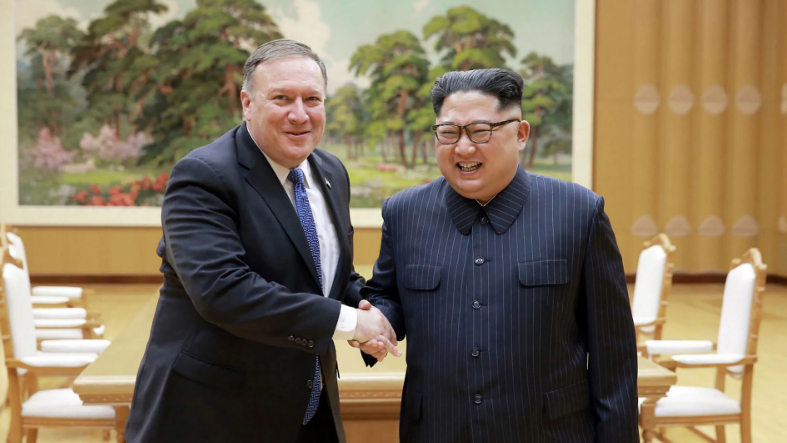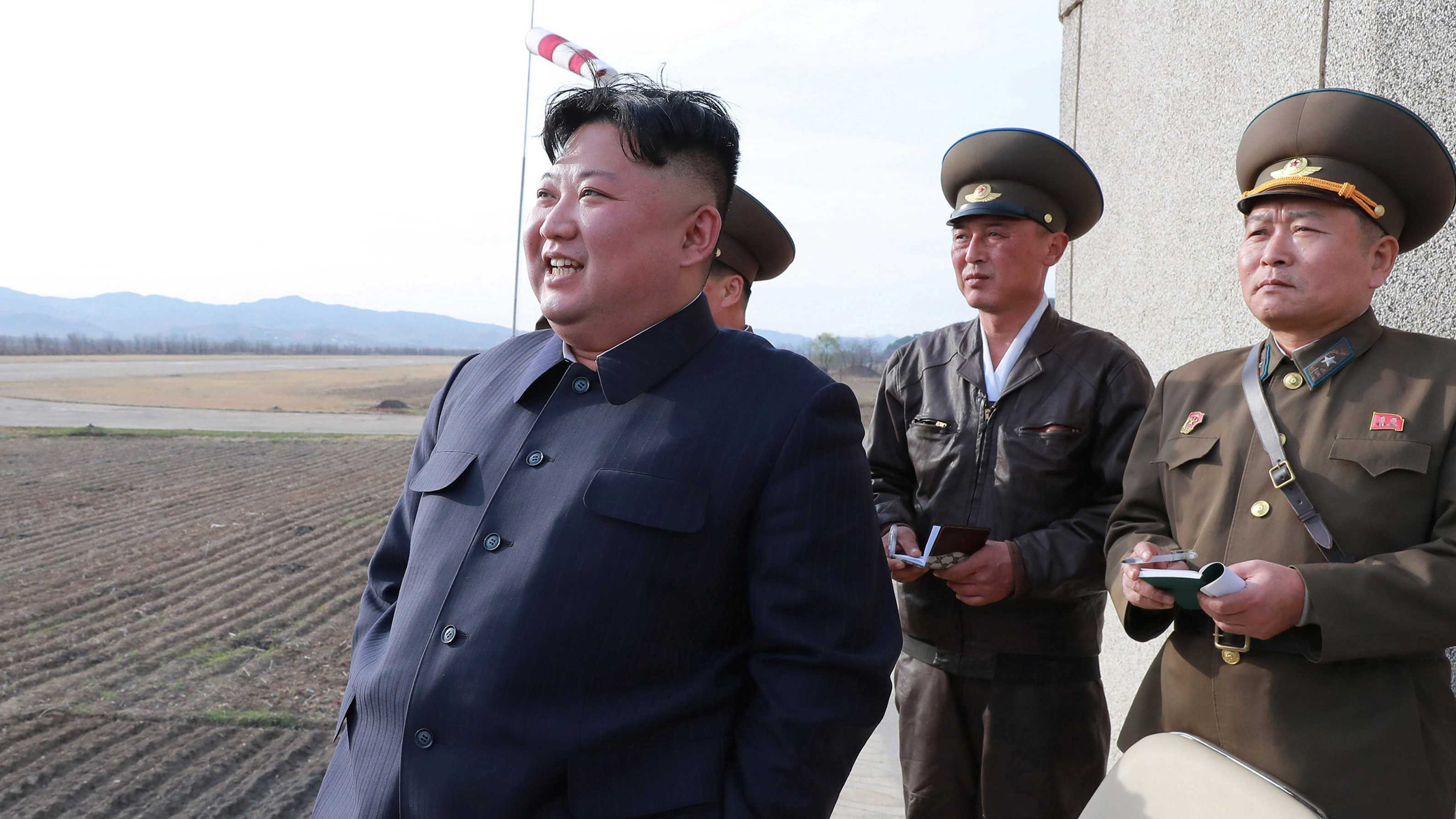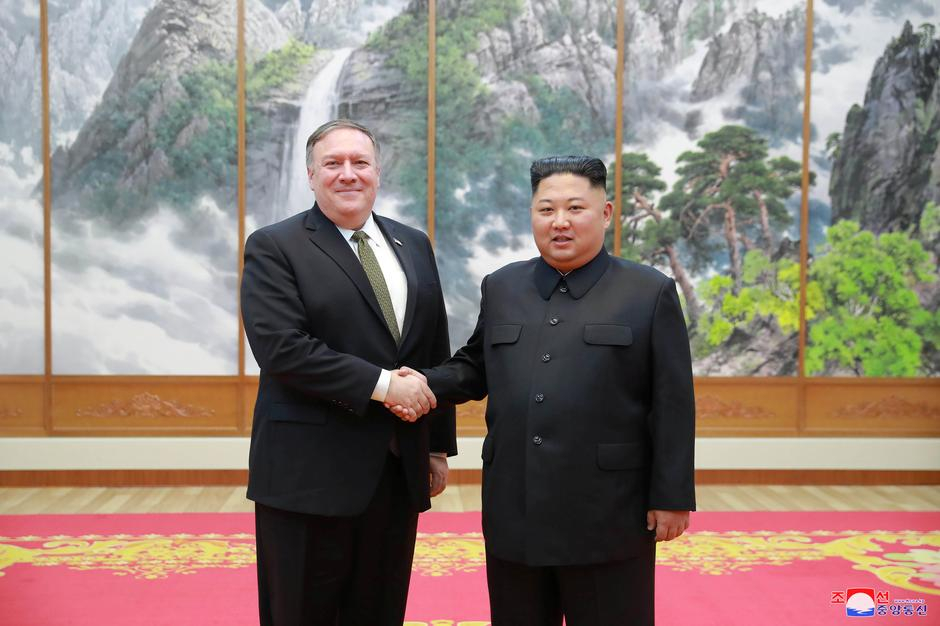
Asia Pacific
08:36, 19-Apr-2019
U.S. plays down DPRK's weapons test, ready to engage in 'constructive' talks
CGTN

The U.S. State Department said it was aware of the report of the Democratic People's Republic of Korea (DPRK) that it no longer wanted to deal with U.S. Secretary of State Mike Pompeo, saying the U.S. remains ready to engage the country "in a constructive negotiation."
The DPRK's state news agency KCNA quoted Kwon Jong Gun, in charge of U.S. affairs at the foreign ministry, as saying, "I am afraid that, if Pompeo engages in the talks again, the table will be lousy once again and the talks will become entangled."
He called for someone who "is more careful and mature in communicating."
Read more:
The statement came shortly after the DPRK leader Kim Jong Un oversaw the test of a new tactical guided weapon, the first weapon test since a summit between him and Trump broke down in late February.
Read more:
U.S. officials appeared to play down both developments, with acting U.S. Defense Secretary Patrick Shanahan telling reporters at the Pentagon that while there had been a test, it was "not a ballistic missile."

DPRK leader Kim Jong Un gives guidance while attending a flight training of Unit 1017 of the People's Army Air, Anti-Air Force at undisclosed location, April 16, 2019. /Reuters Photo
DPRK leader Kim Jong Un gives guidance while attending a flight training of Unit 1017 of the People's Army Air, Anti-Air Force at undisclosed location, April 16, 2019. /Reuters Photo
Despite the failed summit, the DPRK had maintained a freeze in nuclear and ballistic missile testing in place since 2017,and Trump has repeatedly pointed to that as an important outcome from a year of engagement with Pyongyang.
Experts said the DPRK moves appeared aimed at dividing Trump from senior officials in the hope of exacting concessions, particularly relief from punishing sanctions.
KCNA quoted Kwon as saying that the February summit in Hanoi, the second between the two leaders, showed talks could go wrong "whenever Pompeo pokes his nose in."
'More careful and mature'
"Therefore, even in the case of possible resumption of the dialogue with the United States, I wish our dialogue counterpart would be not Pompeo but other person who is more careful and mature in communicating with us," Kwon added.
Joseph Yun, who served as U.S. special representative for the DPRK until last year, said the country had long been dubious about Pompeo, seeing him as a hardline conservative skeptical of engagement with it.

DPRK leader Kim Jong Un (R) meets with U.S. Secretary of State Mike Pompeo in Pyongyang in this photo released by KCNA on October 7, 2018. /Reuters Photo
DPRK leader Kim Jong Un (R) meets with U.S. Secretary of State Mike Pompeo in Pyongyang in this photo released by KCNA on October 7, 2018. /Reuters Photo
He said that while Kwon would have been acting on the highest authority, he was only a mid-level official, so his statements should be "taken with a pinch of salt."
Kim warned last week that the Hanoi breakdown risked reviving tensions and said he was only interested in meeting Trump again if Washington showed more flexibility. He gave a year-end deadline for a change in attitude.
Trump has said he is open to another summit with Kim, but his national security adviser, John Bolton, told Bloomberg News on Wednesday there first needed to be "a real indication from North Korea (DPRK) that they've made the strategic decision to give up nuclear weapons."
Despite the summit failure, Kim and Trump have both stressed their good personal relationship, and Adam Mount of the Federation of American Scientists saw the DPRK's recent statements as "its latest play .. to sideline U.S. officials to try to speak directly to the president."
"The Trump administration has generally chosen to ignore Pyongyang's public signals, including escalating signals of displeasure with the negotiations," he said. "So far, North Korea (DPRK) has not walked away from the table, but they also have resisted pressure to make substantive progress on the nuclear question."
(With input from Reuters)

SITEMAP
Copyright © 2018 CGTN. Beijing ICP prepared NO.16065310-3
Copyright © 2018 CGTN. Beijing ICP prepared NO.16065310-3